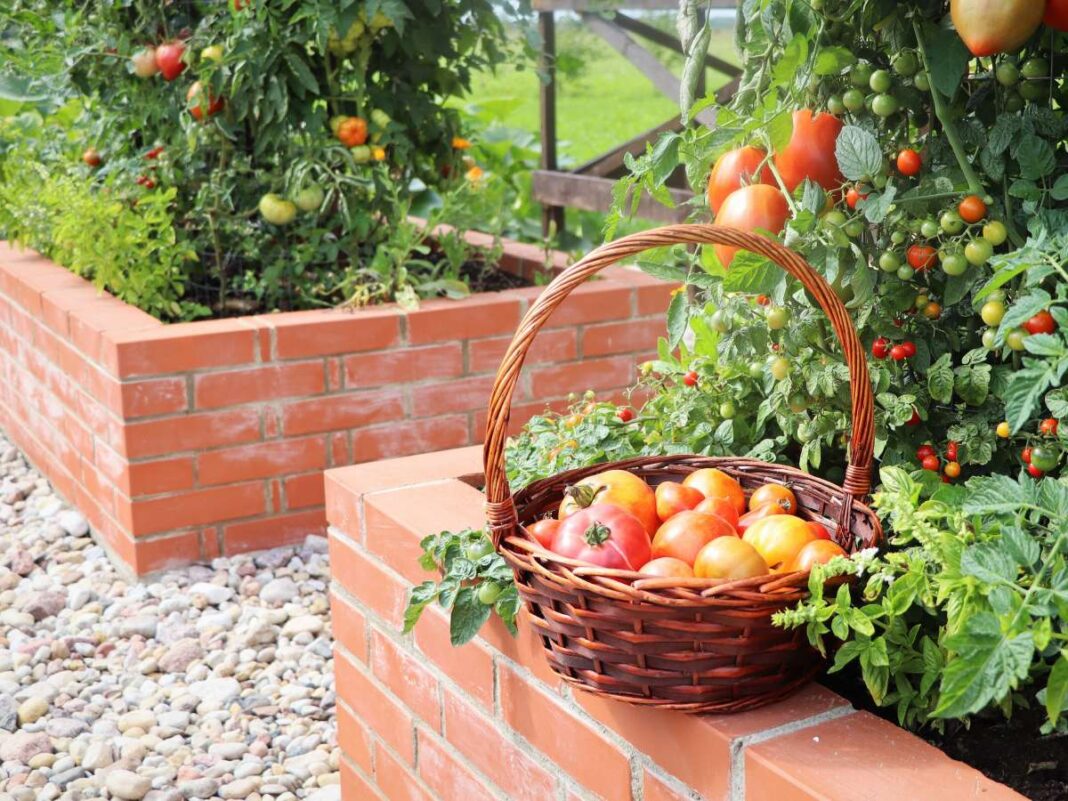In today’s fast-paced world, more people are turning to the simple pleasure of growing their own food. Cultivating an edible garden provides fresh produce and develops a deeper connection with nature and sustainable living. From sprawling backyards to tiny balconies, there’s a way for everyone to enjoy the fruits (and vegetables) of their labor.
The Rise of Edible Gardening
The movement towards edible gardening has been gaining momentum. Homeowners are discovering that they can save money and consume fresher food by growing their own fruits and vegetables. This not only ensures a healthier diet but also offers the satisfaction of knowing exactly what you’re feeding your family. Plus, creating edible gardens can be an enjoyable and rewarding activity for all ages.
Starting Your Edible Garden: Types and Spaces
No matter the size of your living area, there’s a gardening style that suits your needs.
Raised Beds
For those with ample outdoor space, raised beds offer excellent drainage and better soil control, making them ideal for deep-rooted vegetables like carrots. Constructing raised beds from durable materials like oak can provide longevity and aesthetic appeal to your garden.
Container Gardens
If you’re limited on space, container gardens are perfect for patios, balconies, or even window sills. They offer versatility and mobility, allowing you to grow herbs like basil or vegetables such as peppers with ease.
Kitchen Gardens
Urban dwellers without outdoor space can still indulge in gardening. Vertical gardening techniques enable the growth of herbs and small fruits indoors, utilizing window sills or hanging baskets to maximize space.
Selecting the Right Plants for Beginners
Starting simple can lead to greater success and enjoyment.
Herbs
Beginner-friendly herbs like basil, mint, rosemary, and parsley are easy to grow and useful in countless recipes. Their fragrant leaves can also act as natural pest deterrents in your garden.
Vegetables
Lettuce, tomatoes, carrots, and peas are great choices for novice gardeners. They have straightforward growth requirements and can yield a bountiful harvest with minimal fuss.
Fruits
For a sweet addition, consider growing strawberries, raspberries, or even apples. These fruits can thrive in various conditions and provide delicious, homegrown treats.
Companion Planting: Nature’s Way of Gardening
Embracing the concept of companion planting can enhance your garden’s health. Certain plant combinations can boost growth, repel pests, and improve soil nutrients. For instance, planting basil alongside tomatoes can enhance flavor and deter insects, while marigolds can help keep harmful pests at bay.
Soil Health Through Composting
A thriving garden starts with rich, fertile soil. Creating your own compost from kitchen waste is a great way to enhance the soil’s richness naturally. Composting recycles organic matter and reduces the need for chemical fertilizers, promoting a more sustainable gardening practice.
Overcoming Space and Regulatory Challenges
Some homeowners face restrictions when it comes to traditional gardening, especially in communities with strict regulations.
Integrating edible plants into ornamental landscapes, known as foodscaping, offers a discreet way to grow food while maintaining aesthetic appeal. This approach can help you comply with homeowners association rules while still enjoying a productive garden.
Benefits Beyond the Plate
Edible gardening offers numerous advantages that extend beyond fresh produce.
- Environmental Impact: Growing your own food reduces the carbon footprint associated with transporting produce.
- Educational Opportunities: It provides a hands-on learning experience about biology, ecology, and sustainability.
Tips for a Successful Edible Garden
- Plan Before You Plant
Understanding your site’s conditions, like sunlight and soil type, is crucial. Proper planning leads to a more successful and enjoyable gardening experience. - Start Small
For beginners, it is best to start with a few plants and expand as you gain confidence and enough knowledge about gardening. - Regular Maintenance
Consistent watering, pruning, and weeding will keep your garden healthy. Additionally, incorporate organic pest control methods to protect your plants and the environment.

